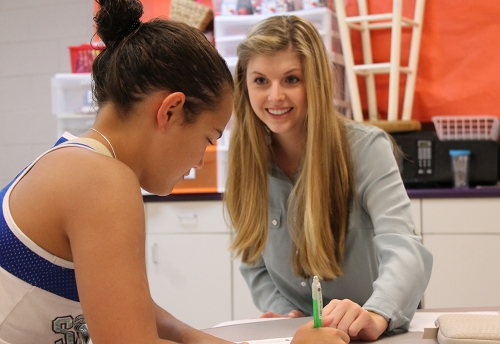 A group of University of Mississippi graduate students spent part of their summer working with children at Lafayette County Upper Elementary School to gain hands-on experience in literacy instruction and intervention while offering summertime support to rising third- and fourth-graders.
A group of University of Mississippi graduate students spent part of their summer working with children at Lafayette County Upper Elementary School to gain hands-on experience in literacy instruction and intervention while offering summertime support to rising third- and fourth-graders.
The newly redesigned Clinical Diagnosis and Correction of Reading Problems class was comprised of 14 master’s and doctoral students currently enrolled in the UM School of Education’s elementary education graduate program. Throughout June,the graduate students conducted assessments and subsequent instructional interventions with the children who participated in the program.
“This course lets our graduate students apply the theory and methods they’ve studied during the school year,” said Lane Roy Gauthier, associate professor of reading/language arts in the Department of the Teacher Education and the instructor of the course. “This also gives us the chance to support local students who desire additional help in reading instruction. We’ve been more than pleased with the participation and enthusiasm.”
Coordinated during the spring with administrators at Lafayette, the hands-on course connected graduate students with children at a variety of reading levels. The UM graduate students used multiple teaching and intervention methods to meet individual students’ needs under the supervision of their instructor.
“I think the most valuable experience is being able to connect with the individual students,” said Samantha Edwards, who completed the course as the last requirement for a master’s degree in elementary education and will begin working at Batesville Intermediate School in the fall. “I want to specialize in language arts and reading intervention so this has been perfect. I’ve worked with one student every day this summer and I’ve seen her sight word recognition go way up.”
Gauthier said he hopes to expand the course next summer and attract a larger number of students; especially those who need additional help in reading.
“This has been a very positive experience working with the students and administrators at Lafayette,” he explained. “By the end of the course, the principal said his students didn’t want the classes to end.”